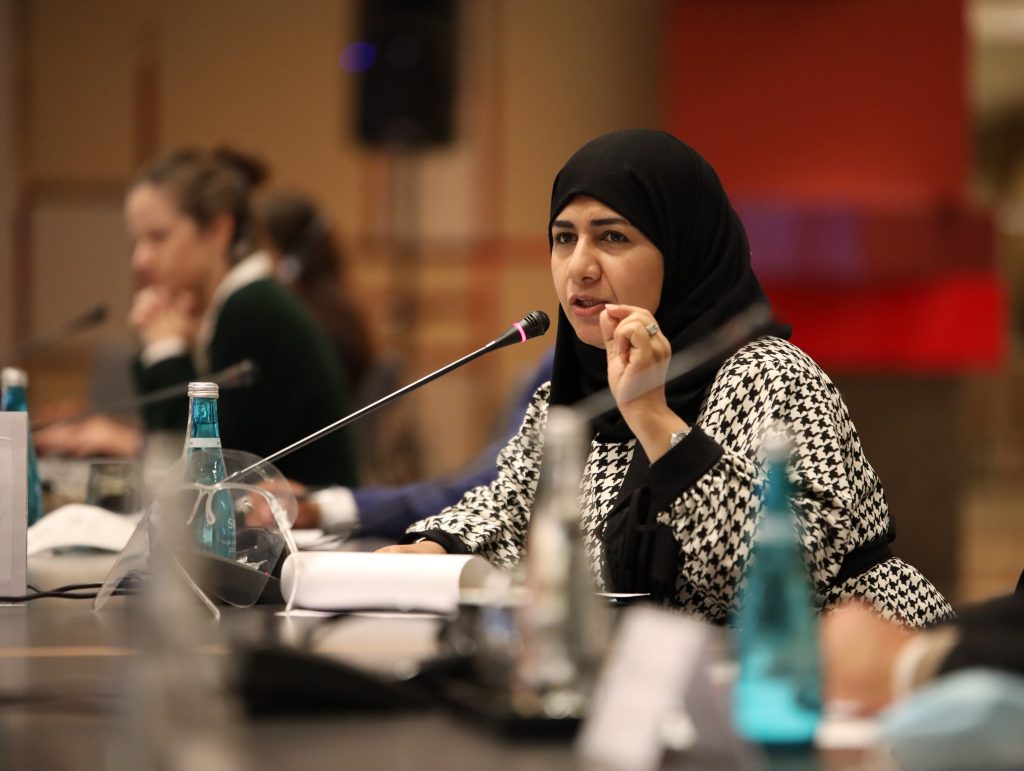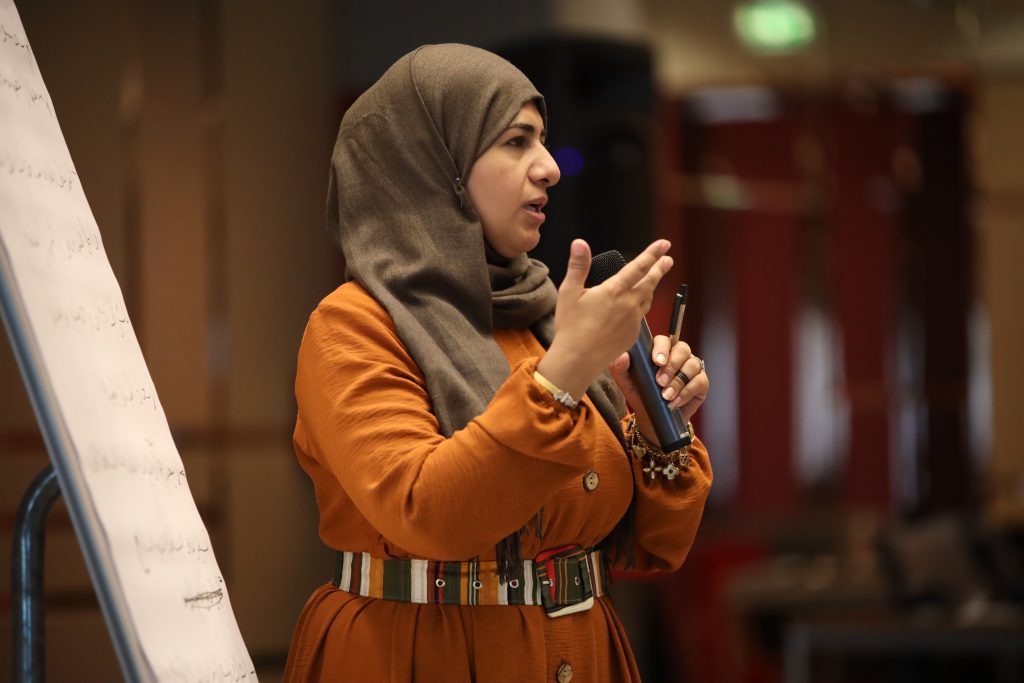Local mediator Laila Lutf Al-Thawr: “They call me the mother of detainees”
Yemeni women work actively and effectively for a more peaceful Yemen. One of the mediators is Laila Lutf Al-Thawr, who has contributed to the release of 1000 prisoners. Laila’s work in arranging prisoner exchanges and releasing detainees started when she successfully negotiated the release of 62 children, some of whom were detained by Al-Qaeda.

Local mediator Laila Lutf Al-Thawr has helped with over 1000 prisoner exchanges.
Laila Lutf Al-Thawr has been working in peacebuilding for over a decade. She has contributed to over a thousand prisoner exchanges in Yemen and is also the first woman to hold a top position in a Yemeni political party, the Arab Hope Party.
Before the 2011 revolution, Laila was a housewife who lived near the main square of the Yemeni capital Sana’a. When the revolution started, she had the front-row seat when revolutionaries packed the square and were confronted by police.
“I saw it all with my own eyes – the violence, people getting killed.”
Laila has always seen civil society as a key component for finding a solution to the volatile situation in Yemen. Violence cannot solve the conflict and a sustainable solution to the crisis can only come from the people themselves.
“The revolution in 2011 felt like more of a revolution for me than for Yemen – because I got to start my career, but Yemen got destroyed. “
Yemeni women are active in their communities and tribes. They lead peace efforts and negotiate prisoner exchanges. But being a woman active in peacemaking and humanitarian affairs often has a price. Laila has been on the receiving end of violent threats in Yemen. She relocated to Egypt, where she continues her work.
“As women, we shouldn’t exclude ourselves.”
Laila explains that she often challenges men in politics by telling them that they must prove their credibility in supporting women’s participation by turning over party leadership positions to women.
“But reducing the role of women to only simple leadership positions does not support women’s political rights.”
“I knew I had to help”
Laila’s work in arranging prisoner exchanges and the release of detainees started almost by chance when she was approached by a child who asked for her help in freeing a friend being detained by Al-Qaeda in the south of Yemen.
“He was about 13 or 14 and had escaped from the south himself at the start of the war in 2015. What he told me sounded like a horror movie. I knew I had to help.”
She started working on the case but soon learned that there were many more children being held in the south. “At first I thought there were one, then I heard there were 20.” In the end, there were 62 children in need of help.
After Laila had successfully negotiated the release of the children, she started to receive more similar requests. Today, she has helped secure the release of hundreds of detainees. “They call me the ‘mother of detainees’,” she says proudly.
Lately, she has been working to build a local mediators’ team to make the exchange efforts more methodical.

Laila at a tribal engagement workshop in Istanbul in January 2021.
Yemenis need concrete action
Laila is one of the influential Yemeni women who has been involved in the tribal engagement workshops organised by CMI and Sana’a Center for Strategic Studies in Istanbul and Toledo earlier this year.
The official peace process is being led by the UN, but durable peace needs commitment from the whole of Yemeni society. “We need to bring everyone’s experience together and start building on it,” says Laila, stressing the importance of cooperation among all Yemenis.
Cooperation is also needed from beyond Yemen’s borders. International support is crucial in achieving stability in the country. But some argue that internationally there is crisis fatigue over Yemen.
“It feels disappointing to hear that because now the local community is truly starting to wake up and this is the moment when we really need support”, Laila says.
CMI’s and Sana’a Center’s project on strengthening tribal engagement supporting peace is one of the initiatives aimed at strengthening the local community in Yemen. The tribal engagement workshops bring together tribal leaders and influential women from the region to discuss how to build on the strong conflict resolution experience the tribes have and to strengthen their peace efforts.
“I think working with the tribes is one of the keys to reaching sustainable peace in Yemen, and I only wish it would have been done from the beginning”.
Yemeni tribes have a long history of solving local disputes and arranging prisoner exchanges, and the tribal entity as a whole contributes effectively to peacemaking. Tribal mediation is based on compromise, empathy, and the culture of apology.
“But it’s not enough to organise a conference and then make a written statement and that’s all. That’s not what we need.”
Laila says she is already seeing the impact of the tribal gatherings, as many tribal leaders have contacted her and wanted to take part in finding ways to support the official peace efforts and discuss the future of Yemen.
“This is what the Yemenis need: concrete actions”.
The tribal engagement workshops are organised and facilitated by CMI and Sana’a Center for Strategic Studies, an independent Yemeni think-tank focusing on Yemen and the surrounding region. The tribal initiative is part of an EU-funded project that aims to support an inclusive peace process to reach a negotiated solution to the conflict in Yemen.

Photos: Olli Puumalainen
Correction: An earlier version of this article incorrectly stated that all 62 children were detained by Al-Qaeda.